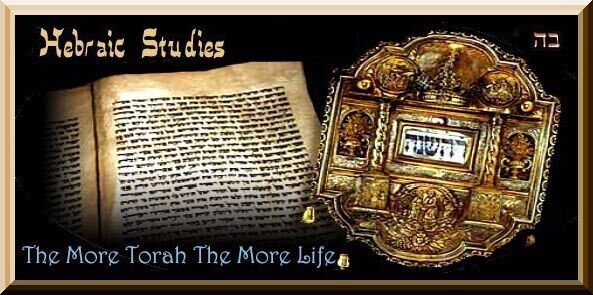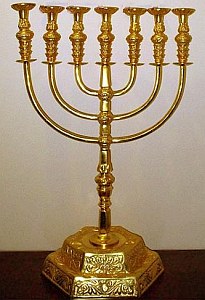Hebraic Studies -
Please Note: Firefox and some other Search Engines may
not be suitable
Use Google Chrome for this Web Page to load perfectly!

Please do NOT visit this site on Shabbat or on a
Please Note: On this site I will show the
four letter blessed *“Memorial
Name” of the Almighty in Ivrit - ![]() - Y-H-V-H, which we
usually pronounce as “Adonai” or “HaShem”.
- Y-H-V-H, which we
usually pronounce as “Adonai” or “HaShem”.
*“This is My Name forever, and this
is My memorial to all generations.” Shemoth - Exodus
3:15.
Verses on this site are taken from the JPS version, being the “Jewish
Publication Society” from their English version.
Some explanations (clarifications), names and the “Memorial
Name” in Ivrit (Hebrew) have been added.
Parashat Beha’alotecha
Manna from Heaven
The True “Essence” of our Faith, one that does not Change
With
![]()
Many of us maintain this contact at various
levels and in different ways. However, at the heart of it all there is that
“Hebrew Essence” which is the real key to our spiritual identity,
and for those who uphold the Shabbat, they will have become very familiar with
the lighting of the Shabbat light on erev Shabbat. Of
course this blessing originates from the lighting of the menorah located
in the “Mishkan” the “Tabernacle” and later
in the
In Parashat Beha’alotecha
 “And
“And
![]() spoke to Moshe saying, saying: ‘Speak
unto Acharon -
spoke to Moshe saying, saying: ‘Speak
unto Acharon - ![]() commanded Moshe. And this was the work of
the menorah, beaten work of gold; unto the base thereof, and unto the flowers
thereof, it was beaten work; according unto the pattern which
commanded Moshe. And this was the work of
the menorah, beaten work of gold; unto the base thereof, and unto the flowers
thereof, it was beaten work; according unto the pattern which ![]() had shown Moshe, so he made the menorah”
Bamidbar - Numbers 8:1-4 (JPS version of the Torah).
had shown Moshe, so he made the menorah”
Bamidbar - Numbers 8:1-4 (JPS version of the Torah).
As we have seen, this Parashat begins with instructions for the lighting of the menorah. The menorah is the candelabra located in the Mishkan the Tabernacle in the wilderness. The menorah is composed of a central candlestick. From the central candlestick extend six branches. Three branches extend from each side. The above translation corresponds with the understanding of the instructions given by Elohim, blessed be He. Acharon is told that the lights located on the six branches are to shed their light towards the central candlestick.
![]() told
Acharon as the High Priest, that he would have the honour of lighting
the menorah each day.
told
Acharon as the High Priest, that he would have the honour of lighting
the menorah each day.
Acharon was entrusted with a variety of responsibilities in the Mishkan and he was the only one who was permitted to execute his responsibility, as only Acharon or a future “Kohen Gadol” - a “High Priest” could perform these services in the Mishkan and those in the “Holy of Holies” - “Qodesh Ha-Qadashim” being the innermost and most sacred area of the Mishkan on Yom Kippur.
How is the above relative today?
These days we light the Shabbat lights on erev Shabbat (Friday late afternoon) as these lights brings the very “Essence” of being Jewish into our homes!
“Remember
the Sabbath day, to keep it holy. Six days shalt thou labour, and do
all thy work; but the seventh day is a Sabbath unto the ![]() (YHVH) Elohim, in it thou shalt not do any
manner of work, thou, nor thy son, nor thy daughter, nor thy man-servant, nor
thy maid-servant, nor thy cattle, nor thy stranger that is within thy gates;
for in six days
(YHVH) Elohim, in it thou shalt not do any
manner of work, thou, nor thy son, nor thy daughter, nor thy man-servant, nor
thy maid-servant, nor thy cattle, nor thy stranger that is within thy gates;
for in six days ![]() made heaven and earth, the sea, and all
that in them is, and rested on the seventh day; wherefore
made heaven and earth, the sea, and all
that in them is, and rested on the seventh day; wherefore ![]() blessed the Sabbath day, and hallowed
it” Shemos - Exodus 20:7-10 (JPS), in other
versions it is in verses 8 to 11.
blessed the Sabbath day, and hallowed
it” Shemos - Exodus 20:7-10 (JPS), in other
versions it is in verses 8 to 11.
![]()
![]()
![]() Elohim, blessed be His Sanctified Name. But for some it may be a more minimal Shabbat. However, the power
of the Shabbat is such that by even observing a part of this wonderful Seventh
Day, it goes a very long way when it comes to our Jewish lives. Elohim willing,
it may come to the point where the feeling of that wonderful and a blessed
Shabbat may blossom in your lives, and this wonderful day will become a major
feature of your week and will be a true day of rest, reflection, peace and
inspiration. The Shabbat can really be a day that provides you not just with
rest but will also provide you energy and a sense of purpose to the working
days of the week ahead! Also you may well find that you will love keeping the
day holy unto our beloved Creator, as He has asked us to do, and this will
provide the greatest enhancement in our lives!
Elohim, blessed be His Sanctified Name. But for some it may be a more minimal Shabbat. However, the power
of the Shabbat is such that by even observing a part of this wonderful Seventh
Day, it goes a very long way when it comes to our Jewish lives. Elohim willing,
it may come to the point where the feeling of that wonderful and a blessed
Shabbat may blossom in your lives, and this wonderful day will become a major
feature of your week and will be a true day of rest, reflection, peace and
inspiration. The Shabbat can really be a day that provides you not just with
rest but will also provide you energy and a sense of purpose to the working
days of the week ahead! Also you may well find that you will love keeping the
day holy unto our beloved Creator, as He has asked us to do, and this will
provide the greatest enhancement in our lives!
Shabbos is not merely the abstention of Elohim’s creative process. We read in the Torah something, which somehow seems redundant, it states; “Elohim completed His work … Elohim rested”. I wonder, doesn’t the first statement that “Elohim completed His work” teach that He rested? If so, for what reason do we need the additional phrase “Elohim rested?” I believe this is to teach that His Shabbat was not merely an abstention from creation. Our loving Creator wanted to teach us that His Shabbat is actually a “positive institution”, the intentional withdrawal from the physical and not just the mere cessation from labour. Shabbos has a positive, real quality and the status of being a day whose definition is not just a break from work, but primarily “a day dedicated to the involvement in things spiritual”. It is such a blessing to attend the Synagogue and spend the day devoted to Torah study in awe of our Creator.
Our inactivity on Shabbos also demonstrates our true belief in the ability for Elohim to sustain us. This explains why we do not make request for material needs in the prayers on Shabbos. This also ties in with the concept that the ‘manna’ in the desert did not fall on the Shabbat, to teach us that they should have complete confidence in Elohim’s word that He would sustain them. On the six weekdays, “manna” fell each day, and there was enough for that day. Any manna that was kept for the following day, demonstrated their disbelief that it would fall again tomorrow, and as Elohim has said; leftover manna would become wormy and rot for the purpose of forcing us to believe in Elohim’s word. However on the Friday, we were commanded to gather enough for that day, when they did this, they found that the manna in their homes had miraculously doubled in size, to sustain them on Shabbos as well. This is the reason why we have two loaves of bread on Shabbat, commemorating the double portion in the wilderness on the Friday!
“And it shall come to pass on the sixth day that they shall prepare that which they bring in, and it shall be twice as much as they gather daily” Shemos - Exodus. 16:5 (JPS).
This miracle was enacted by Elohim to engender the Hebrews’ faith in His word, that He would and will sustain them. Similarly, our abstinence from labour on the Sabbath demonstrates this concept today.
The lesson found in
It is interesting that although some people
complained about the manna, but it was still there for them. For Moshe,
Despite their rebellion, the Manna continued
to come. After the inundation of quails described in
The manna, the blessed Shabbat and yes the
Torah itself, all have the quality of the “Essence.” These concepts
help’s us Jews to preserve his or her essence through
Come Mashiach, come soon!
Visit Light the Sabbath Candles - This is a guide for those who wish to start upholding the blessed Shabbat, and lighting the Sabbath lights (Candles), this page is complete with relevant prayers, etc.

Rabbi
Return to our MAIN PAGE or go to our Main Index

![]() - Y-H-V-H, which we usually pronounce as “Adonai” or “HaShem”. At all times treat the most
blessed Name with sanctity and when we even see the Name, we should say “blessed be His Sanctified Name.”
- Y-H-V-H, which we usually pronounce as “Adonai” or “HaShem”. At all times treat the most
blessed Name with sanctity and when we even see the Name, we should say “blessed be His Sanctified Name.”
*“This is My Name forever, and this is My memorial to all generations.” Shemoth - Exodus 3:15.
© Copyright - 1989
- 2021 © hebraicstudies - All rights reserved

